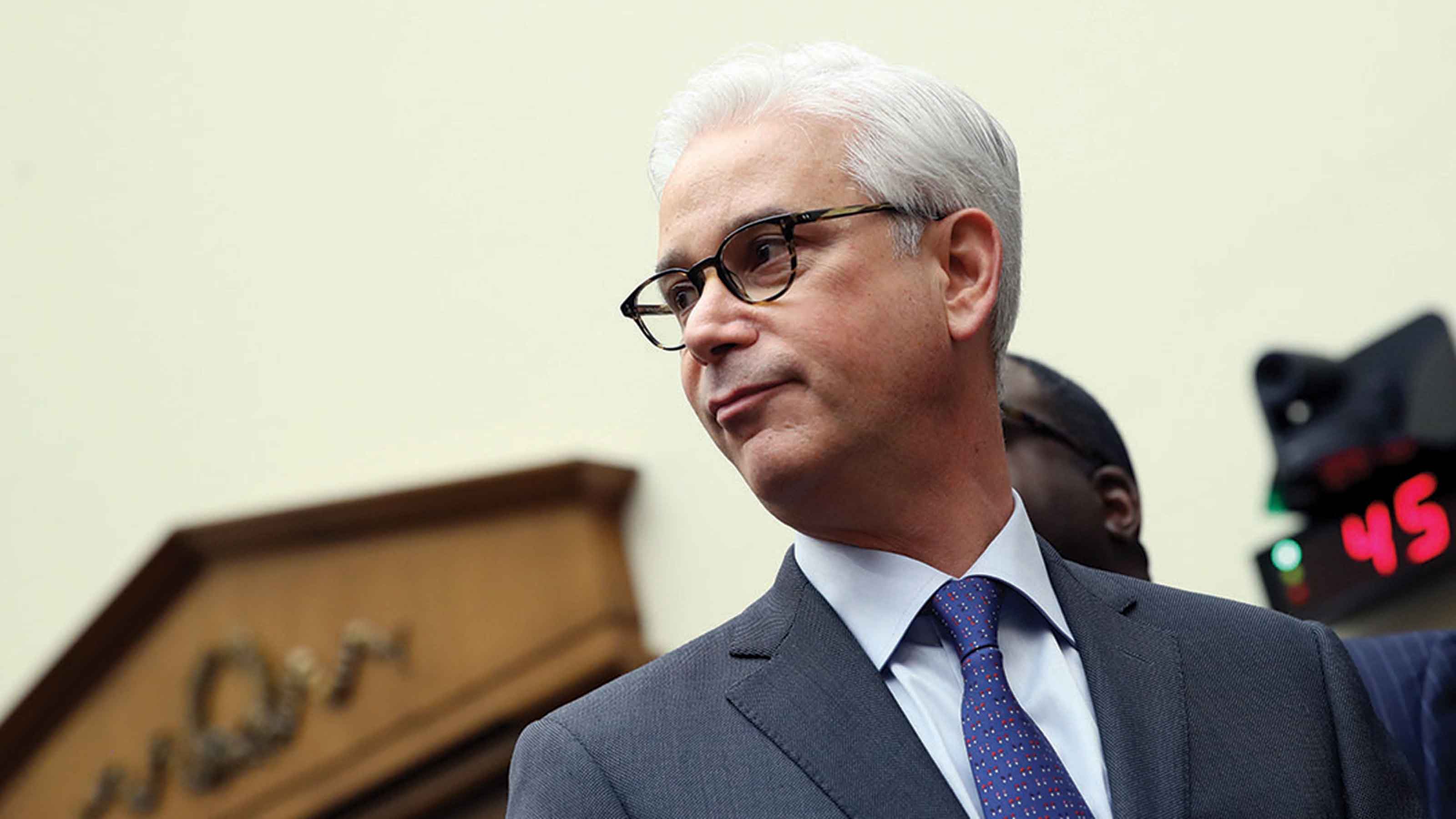Debit-Card Swipe Fees Costing You?
We could end up paying higher bank fees without seeing a reduction in retail store prices.

Profit and prosper with the best of Kiplinger's advice on investing, taxes, retirement, personal finance and much more. Delivered daily. Enter your email in the box and click Sign Me Up.
You are now subscribed
Your newsletter sign-up was successful
Want to add more newsletters?

Delivered daily
Kiplinger Today
Profit and prosper with the best of Kiplinger's advice on investing, taxes, retirement, personal finance and much more delivered daily. Smart money moves start here.

Sent five days a week
Kiplinger A Step Ahead
Get practical help to make better financial decisions in your everyday life, from spending to savings on top deals.

Delivered daily
Kiplinger Closing Bell
Get today's biggest financial and investing headlines delivered to your inbox every day the U.S. stock market is open.

Sent twice a week
Kiplinger Adviser Intel
Financial pros across the country share best practices and fresh tactics to preserve and grow your wealth.

Delivered weekly
Kiplinger Tax Tips
Trim your federal and state tax bills with practical tax-planning and tax-cutting strategies.

Sent twice a week
Kiplinger Retirement Tips
Your twice-a-week guide to planning and enjoying a financially secure and richly rewarding retirement

Sent bimonthly.
Kiplinger Adviser Angle
Insights for advisers, wealth managers and other financial professionals.

Sent twice a week
Kiplinger Investing Weekly
Your twice-a-week roundup of promising stocks, funds, companies and industries you should consider, ones you should avoid, and why.

Sent weekly for six weeks
Kiplinger Invest for Retirement
Your step-by-step six-part series on how to invest for retirement, from devising a successful strategy to exactly which investments to choose.
Not long ago, I received a press release from the National Foundation for Credit Counseling lamenting the lack of response to its toll-free number (800-388-2227) that directs consumers to local nonprofit credit counseling agencies. The Credit Card Accountability, Responsibility and Disclosure Act requires that such a number be displayed on credit card bills, and the NFCC estimates that its hot line has been listed on 500 million statements since February 2010. Nonetheless, only 150,000 people have responded, a rate the group finds “confusing.”
It makes perfect sense to me. I recently attended a Boston University conference at which a panel of experts concluded that broad-brush efforts to improve financial literacy don’t work because they don’t hit people when they need the information. The best time to provide financial education is when people actually have to make financial decisions. And despite the credit problems faced by many consumers, most people who pay their monthly bills don’t need help.
News of the credit card hot line’s lukewarm reception demonstrated how a well-intentioned law can have unintended, and unexpected, consequences. And it seemed particularly relevant because it coincided with a rancorous debate over yet another piece of legislation that will have significant consequences for consumers—the battle over debit card swipe fees. These are fees that merchants pay to banks every time you use your debit card. Prompted by complaints from retailers that the fees, which averaged 44 cents per transaction, were too high, an amendment to the Dodd-Frank financial regulation bill directed the Federal Reserve to set a “reasonable” fee.
From just $107.88 $24.99 for Kiplinger Personal Finance
Become a smarter, better informed investor. Subscribe from just $107.88 $24.99, plus get up to 4 Special Issues

Sign up for Kiplinger’s Free Newsletters
Profit and prosper with the best of expert advice on investing, taxes, retirement, personal finance and more - straight to your e-mail.
Profit and prosper with the best of expert advice - straight to your e-mail.
From the first, I wondered how the Fed, or anyone else, could determine what a “reasonable” fee would be, and whether the rule would really result in lower prices for consumers, as supporters claimed. The amendment immediately set off fierce lobbying, pitting retailers, who supported the rule, against bankers, who claimed that lowering swipe fees would cost them billions of dollars that they use to pay for other services, such as free checking and fraud prevention.
The Fed decided to split the baby, cutting the fee roughly in half. Banks have already started to recoup lost revenue by cutting back on free checking and debit card reward programs, and by raising other fees (our story tells you how to avoid high fees and get the best deals). And look for banks to start promoting prepaid cards as a replacement for debit cards.
Price cuts? Will the rule ultimately mean lower retail prices for consumers? I’ll go out on a short limb and predict that it won’t. “If a swipe fee averages 1% to 2% of the transaction cost, retailers won’t lower the price of a candy bar from 99 cents to 98 cents,” says Bill Hardekopf, CEO of LowCards.com. “They’ll pocket the money.” So we could end up paying higher bank fees without seeing a reduction in retail prices—a net loss. And we could be caught in a tug-of-war between retailers pushing debit cards and banks pushing credit cards.
All of which makes me think it’s not such a bad thing that regulators are way behind on writing rules required by the Dodd-Frank bill (see our interview with market regulation specialist James Angel). If we’re going to make major changes, we should take the time to think them through and follow the medical dictum: First, do no harm.
P.S. Get timely access to Kiplinger’s financial advice on your iPhone or Android with our mobile Web site. Go to m.kiplinger.com.
Profit and prosper with the best of Kiplinger's advice on investing, taxes, retirement, personal finance and much more. Delivered daily. Enter your email in the box and click Sign Me Up.

Janet Bodnar is editor-at-large of Kiplinger's Personal Finance, a position she assumed after retiring as editor of the magazine after eight years at the helm. She is a nationally recognized expert on the subjects of women and money, children's and family finances, and financial literacy. She is the author of two books, Money Smart Women and Raising Money Smart Kids. As editor-at-large, she writes two popular columns for Kiplinger, "Money Smart Women" and "Living in Retirement." Bodnar is a graduate of St. Bonaventure University and is a member of its Board of Trustees. She received her master's degree from Columbia University, where she was also a Knight-Bagehot Fellow in Business and Economics Journalism.
-
 Dow Adds 1,206 Points to Top 50,000: Stock Market Today
Dow Adds 1,206 Points to Top 50,000: Stock Market TodayThe S&P 500 and Nasdaq also had strong finishes to a volatile week, with beaten-down tech stocks outperforming.
-
 Ask the Tax Editor: Federal Income Tax Deductions
Ask the Tax Editor: Federal Income Tax DeductionsAsk the Editor In this week's Ask the Editor Q&A, Joy Taylor answers questions on federal income tax deductions
-
 States With No-Fault Car Insurance Laws (and How No-Fault Car Insurance Works)
States With No-Fault Car Insurance Laws (and How No-Fault Car Insurance Works)A breakdown of the confusing rules around no-fault car insurance in every state where it exists.
-
 Airbnb Host Tells What It's Like
Airbnb Host Tells What It's LikeBusiness Costs & Regulation This Denver pharmacist began booking her ski condo a few months after the pandemic hit.
-
 Tough Times for a Family Business
Tough Times for a Family BusinessBusiness Costs & Regulation His dry-cleaning operation was rocked by the pandemic, but he is staying optimistic.
-
 IRS Gives Truckers a Tax Break in Response to the Colonial Pipeline Shutdown
IRS Gives Truckers a Tax Break in Response to the Colonial Pipeline ShutdownTax Breaks The tax penalty for using dyed diesel fuel for highway use is temporarily suspended.
-
 Reliving a Harlem Renaissance
Reliving a Harlem RenaissanceBusiness Costs & Regulation After a tough winter, two sisters look forward to reviving their restaurant’s business.
-
 Add a VPN to Surf the Internet Safely
Add a VPN to Surf the Internet SafelyTechnology To help you fight identity theft, consider adding a VPN.
-
 Stephanie Creary: Making the Case for Diversity on Corporate Boards
Stephanie Creary: Making the Case for Diversity on Corporate BoardsBusiness Costs & Regulation Adding underrepresented voices can improve a company’s bottom line.
-
 How We Lose When We Overlook Black Talent
How We Lose When We Overlook Black TalentBusiness Executives Comments from Wells Fargo CEO Charles Scharf (pictured) reflect a culture that tramples on clients’ trust and limits opportunities for people of color.
-
 Retirees, Create An Emergency Fund for Rental Property
Retirees, Create An Emergency Fund for Rental PropertyBusiness Costs & Regulation Build a cushion to protect your income from an unforeseen crisis.